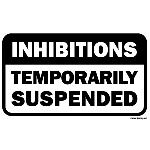 At this time, the still unresolved impasse in Canada involving the little Filipino immigrant boy of 7 chastised by his lunchroom monitor and school principal for his exotic table manners is about as passé as the proverbial dead horse being beaten.
At this time, the still unresolved impasse in Canada involving the little Filipino immigrant boy of 7 chastised by his lunchroom monitor and school principal for his exotic table manners is about as passé as the proverbial dead horse being beaten. But the continuing deadly silence emanating from the Canadians has allowed this little petty incident to not only take on a life of its own but could actually morph into an ogre of a situation.
The justifiably angry rhetoric coming from expats and compats of the islands nation of the Philippines continues to being heaped unabatedly upon the two hapless Canadian bureaucrats who have remained silent, at least publicly.
I wonder why they just do not get right on to it and explain where and what really is the crux of this problem. And mind you, I do not think it was the because the little boy showed ambidextrous finesse with his unusual ease in the use of two metal utensils (spoon and fork) why he was being chastised and isolated from the rest of his classmates during lunch. That can’t possibly be the real cause.
So why not just come up and say that Westerners get turned off seeing and hearing from some Asian cultures the manner they chew their food with mouths open and making audible lip-smacking sounds doing so.
To the typical Westerner’s eye while this may be part of the alien’s culture, it also seemingly smacks of unsavory table manners.
And you know what, they would probably have unanimity of opinion on this, including from those coming from those same cultures in question.
 Consider the following reactions coming from Filipinos themselves:
Consider the following reactions coming from Filipinos themselves:FilAm from Stockton:
Who hates it when people make chewing noises and consume with their mouths open while eating / who loves to eat hot and spicy food / who loves all types of food …
A comment from one blogsite:
Re: Filipino Table Etiquette Punished at Montreal School
by jen on Fri 28 Apr 2006 09:54 PM EDT | Permanent Link
“Eat like a pig”???
Boy that makes me mad. I find someone chewing with their mouth open far more offensive. While they’re at it, they should clamp down on people who lick their knives as well.
A FilAm Student of UC – Irvine:
Pet Peeves? Chewing with mouth open/smacking your mouth when you chew.
A Filipina In Hawaii
Pet-peeves: People who PDA in front of everybody, people who chew with their mouth open, …..
From An Asian Lady in UC-Davis:
What are your pet peeves?
People who chew with mouth open, talk with mouth full;
From An American from faraway Rhode Island:
What things turn you off about someone?:
Smoking (It's not good for you). Chewing with mouth open.
 Here are a few statements from a blog entry that was intended as a parody on our most famous FilAm political journalist/blogger and best-selling author, Michelle Malkin:
Here are a few statements from a blog entry that was intended as a parody on our most famous FilAm political journalist/blogger and best-selling author, Michelle Malkin:Progressives have long questioned the authorship of Michelle Malkin’s books & articles, as it stretches credibility to imagine that someone who’s a minority twice over - not just a short person but one from New Jersey - would be capable of spelling her own name. While it’s true that Filipinos are known for being extremely rude, real Filipino women dress in mismatched prints & eat with their mouths open.
Linked to the last clause, eat with their mouths open, was the following:
Category: Geography
Subject: Lip-smacking Filipinos
Question:
I work in a small office with three Filipino employees and live in an area with a large Filipino population. It seems that most or all of them smack their lips when eating - and not quietly. I avoid taking lunch when they do because this is so annoying to me. I was taught that smacking lips and eating with your mouth open is very rude. Is this something common to the Filipino culture and not considered rude there?
POSTED 8/23/2004
Mike, Santa Cruz, CA, United States, 43, Male, Humanist, White/Caucasian, Gay, Finance, Over 4 Years of College, Upper middle class, Mesg ID 8132004122029
So there you have it. And there is more from where this came from.

